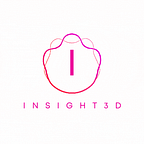The current grading system, which relies on letter grades (A, B, C, D, and F), has several detrimental effects on students and the educational system as a whole. The letter grade system creates a competitive environment in which students are more focused on getting the highest grade possible, rather than truly learning the material. This often leads to cheating and plagiarism, as students are more concerned with achieving a good grade than with actually understanding the material. Additionally, the letter grade system puts a great deal of pressure on students, causing them to become anxious and stressed. This can lead to a lack of motivation and a decrease in overall performance.
Furthermore, the letter grade system is not an accurate measure of a student’s knowledge and understanding of the material. A student may receive an A in a course but still not have a deep understanding of the material. On the other hand, a student who receives a C may have a much better grasp of the material but may not have performed as well on tests or assignments. The letter grade system does not take into account the individual strengths and weaknesses of each student. A student who excels in math but struggles in English may receive the same grade in both subjects, even though their understanding and performance in each subject are vastly different.
One alternative to the traditional letter grading system is the use of portfolios. Portfolios allow students to showcase their work throughout the school year and demonstrate their understanding of the material. This method of assessment allows for a more comprehensive view of a student’s learning and growth, as opposed to a single-letter grade. Additionally, portfolios can be used to track a student’s progress over time and identify areas where they may need additional support.
Another alternative is the use of self-reflection. Self-reflection allows students to evaluate their own understanding of the material and identify areas where they may need additional support. This method of assessment encourages students to take responsibility for their own learning and to become more self-aware. Additionally, self-reflection can be used to identify areas where a student may need additional support, and provide targeted instruction.
Student-led conferences are also an alternative to the traditional grading system, this method allows students to take ownership of their learning and to share their understanding of the material with their parents, teachers, and peers. This method of assessment encourages students to take responsibility for their own learning and to become more self-aware. Additionally, student-led conferences can be used to identify areas where a student may need additional support, and provide targeted instruction.
In conclusion, the current letter grading system is detrimental to students and the educational system as a whole. It creates a competitive environment that encourages cheating and plagiarism, puts a great deal of pressure on students, and does not accurately measure a student’s understanding of the material. Alternative methods of assessment such as portfolios, self-reflection, and student-led conferences should be considered as a way to move away from this traditional method of grading. These alternatives provide a more comprehensive view of a student’s learning and growth and encourage students to take responsibility for their own learning. Additionally, they can be used to identify areas where students may need additional support and provide targeted instruction.
It is important to note that implementing alternative methods of assessment can be a challenging process, it will require time, effort, and collaboration between teachers, administrators, parents, and students. However, these alternatives provide a more comprehensive view of a student’s learning and growth and encourage students to take responsibility for their own learning. Additionally, they can be used to identify areas where students may need additional support and provide targeted instruction. As a student or a parent, you can play a role in promoting alternative methods and bringing this topic to the attention of educators, administrators, and other stakeholders in the education system.
